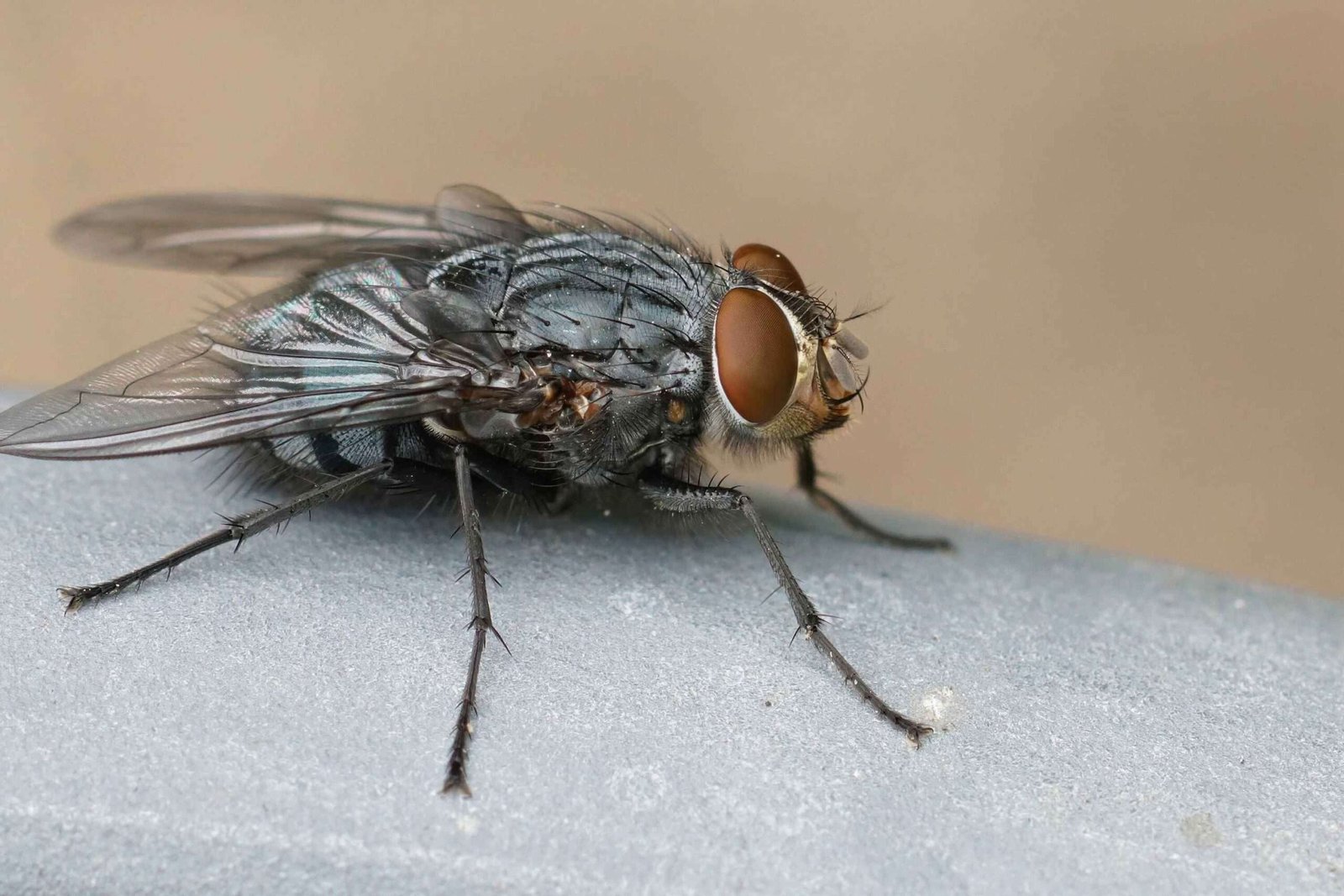welcome to the new blog post, In this guide I will provide you with some detailed strategies on how to get rid of house flies.
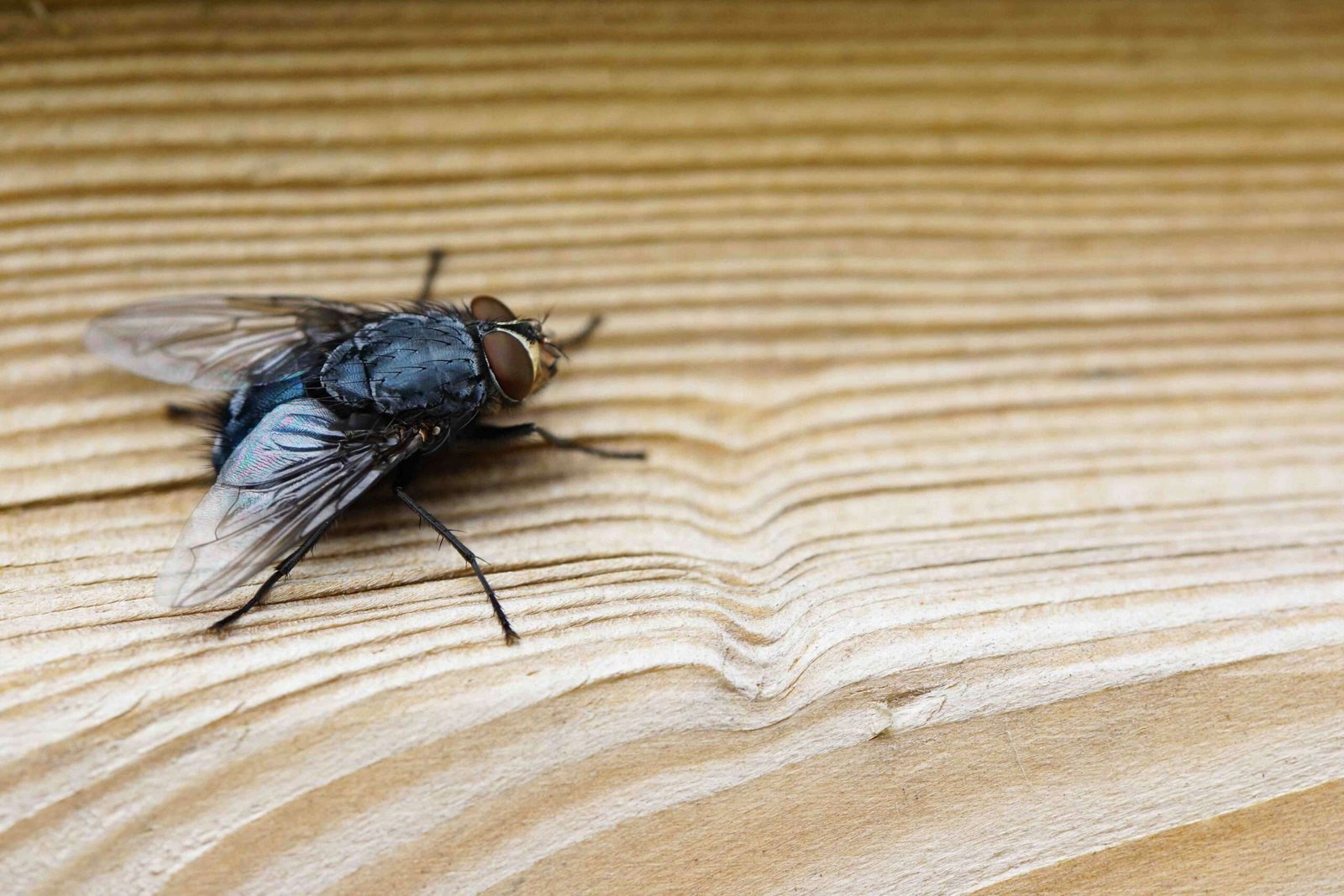 Dealing with house flies is a constant and frustrating challenge, especially during hot weather. These small, buzzing flies disrupt the peace of our homes and pose potential health risks by spreading diseases.
Dealing with house flies is a constant and frustrating challenge, especially during hot weather. These small, buzzing flies disrupt the peace of our homes and pose potential health risks by spreading diseases.
To effectively get rid of house flies, it is important to adopt a multi-pronged approach, which combines hygiene, preventive measures and targeted measures. Ensure all food is stored safely and in tightly sealed trash cans. Implementing preventative measures, such as installing screens on windows and doors, can act as a barrier to keep flies away. Additionally, using natural repellents such as essential oils or herbs can help prevent existing infestations.
What are the signs of a housefly infestation?
House flies are small in size, but when they decide to make your home theirs, they appear everywhere and easily catch our attention. Let’s look at the indicators that indicate a house fly infestation going on in our house.
A. Unusual Swarms: One of the most obvious signs is the sudden appearance of swarms of houseflies in your home. If you find yourself flying more flies than usual or notice swarms of flies. it confirms that your house has a Housefly Infestation. These indicate an increasing population in or around your house.
B. Frequent Sightings: While a stray fly now and then is normal, frequent sightings indoors could signify an infestation. Pay attention to increased activity, especially during seasons when flies are typically less active. If they seem to be making themselves at home, it’s time to take action.
C. Persistent buzzing sounds: Persistent buzzing sounds in your living space may signify a potential housefly infestation. If you find yourself constantly surrounded by the distinctive sound of buzzing flies, So it is confirmed that flies have been infested in your house. And it is important to check.
Why are house flies attracted to my home?
House flies are attracted to homes due to a combination of factors, with food and breeding grounds playing significant roles.
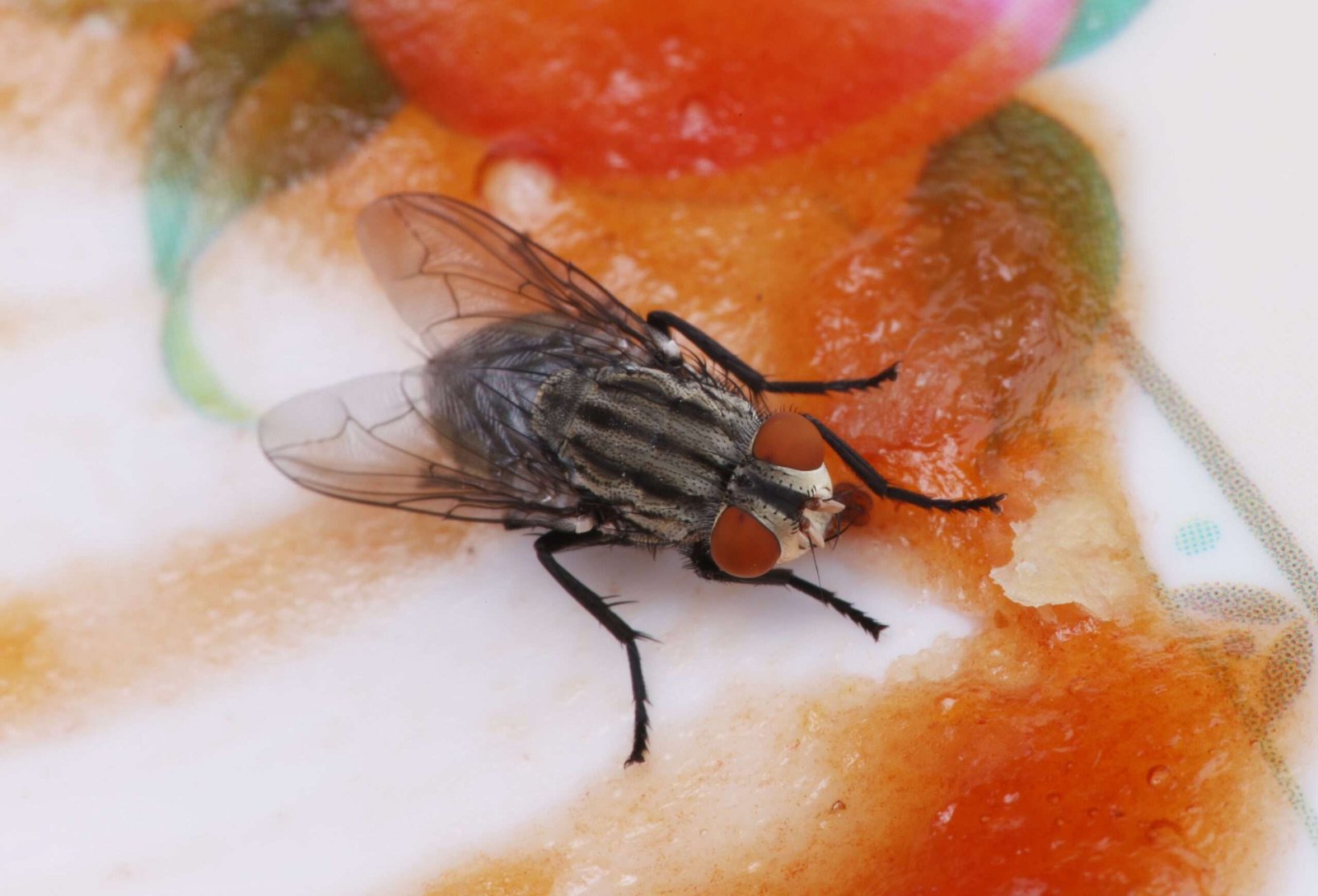 Food Sources: One of the primary attractions for house flies is the scent of decaying organic matter and Overripe fruits, vegetables, or sugary liquids like spilt beverages become breeding grounds and food sources for flies. open garbage bins or unattended pet waste emit odours that entice flies into your home in search of nourishment.
Food Sources: One of the primary attractions for house flies is the scent of decaying organic matter and Overripe fruits, vegetables, or sugary liquids like spilt beverages become breeding grounds and food sources for flies. open garbage bins or unattended pet waste emit odours that entice flies into your home in search of nourishment.
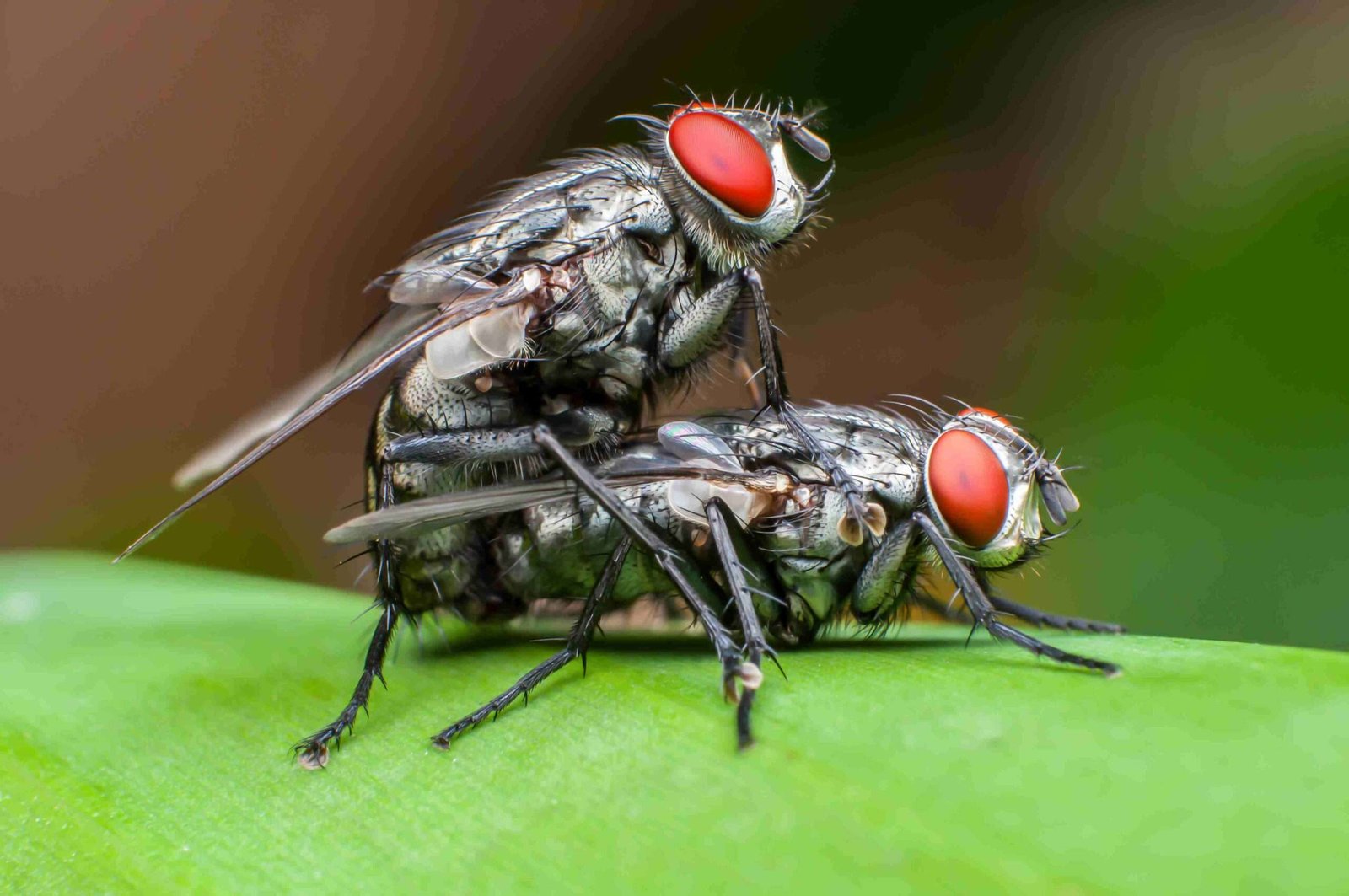 Breeding Grounds: House flies actively seek out suitable places to lay their eggs. Any area with decomposing organic matter, such as rotting food, can become a breeding ground. The warmth and accessibility of indoor spaces make homes particularly attractive for fly reproduction. Hence when dealing with getting rid of house flies it is important to destroy their eggs.
Breeding Grounds: House flies actively seek out suitable places to lay their eggs. Any area with decomposing organic matter, such as rotting food, can become a breeding ground. The warmth and accessibility of indoor spaces make homes particularly attractive for fly reproduction. Hence when dealing with getting rid of house flies it is important to destroy their eggs.
Moisture: Flies are drawn to moisture, making areas with standing water or dampness appealing. Leaky faucets, spills, or poorly ventilated spaces can create environments conducive to fly activity and breeding.
Human and Pet Odors: The scents produced by humans and pets act as additional attractants for house flies. These odours, perceived as potential food sources, encourage flies to explore areas where these smells are prominent.
Warmth and Shelter: Homes provide a comfortable refuge for house flies, especially during colder seasons. The warmth and shelter offered by indoor spaces make them inviting for flies seeking a suitable environment.
why it’s important to get rid of house flies?
For several reasons, including the significance of keeping a clean and hygienic home, Getting rid of house flies is necessary. Eliminating houseflies is a priority due to the serious risks and concerns they cause.
Health risks:
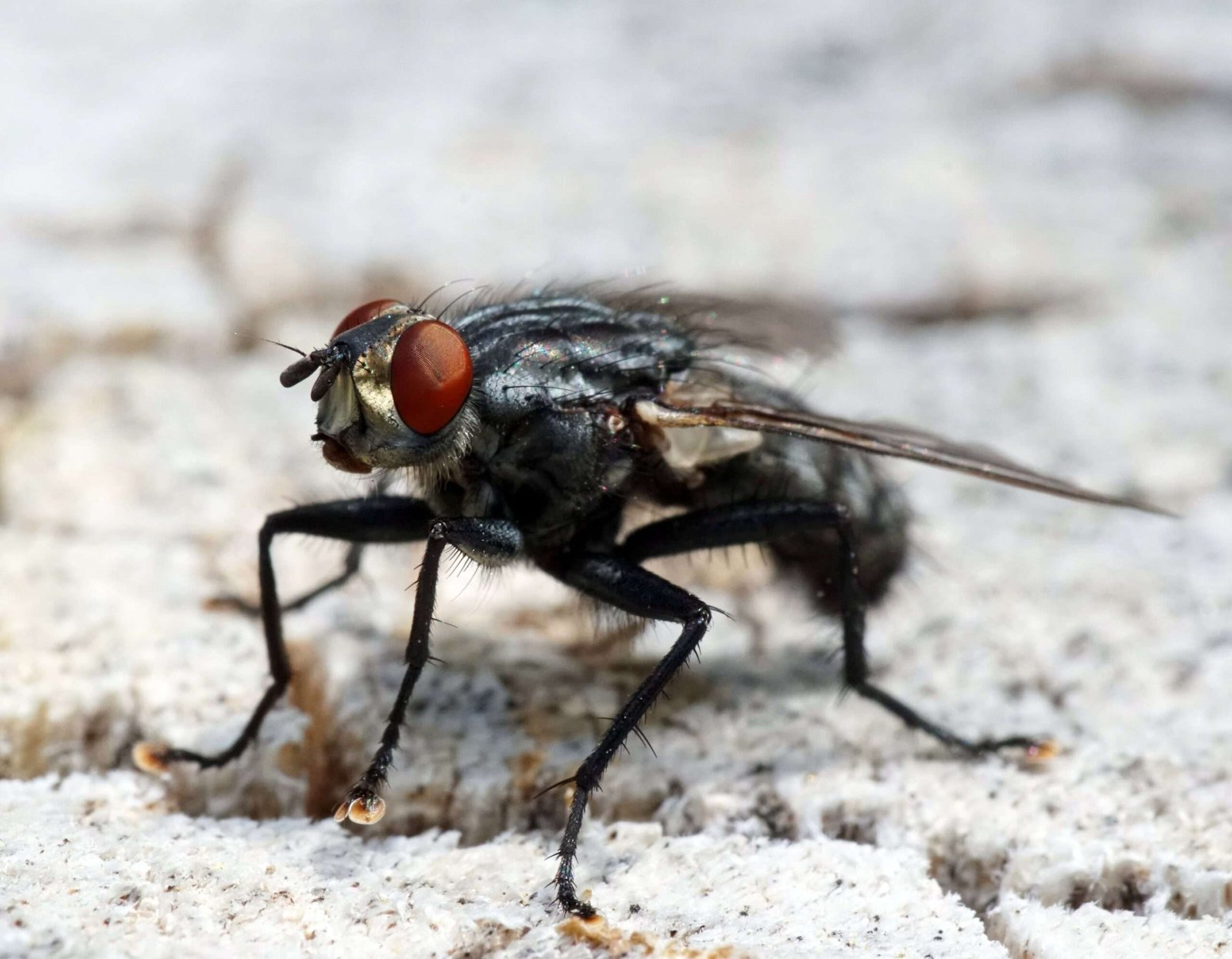 Disease transmission: Although they don’t bite, houseflies can carry and spread over 100 different pathogens, including bacteria, viruses, and parasites. These pathogens are picked up from various sources like decaying organic matter, animal waste, and even sewage, and then transferred to surfaces and food when flies land on them. This can lead to various illnesses, including food poisoning, dysentery, typhoid fever, cholera, and even eye infections.
Disease transmission: Although they don’t bite, houseflies can carry and spread over 100 different pathogens, including bacteria, viruses, and parasites. These pathogens are picked up from various sources like decaying organic matter, animal waste, and even sewage, and then transferred to surfaces and food when flies land on them. This can lead to various illnesses, including food poisoning, dysentery, typhoid fever, cholera, and even eye infections.
Nuisance and disruption: The constant buzzing and presence of flies can be annoying and disrupt your daily life, making it difficult to relax or enjoy meals comfortably.
Hygiene concerns:
Contamination of food and surfaces: As mentioned earlier, houseflies can contaminate food and surfaces with pathogens they carry, posing a hygiene risk. This is particularly concerning in areas like kitchens and dining spaces.
Unpleasant odours: Large numbers of flies can contribute to unpleasant odours in your home, further adding to the nuisance factor.
What are the common breeding grounds for house flies?
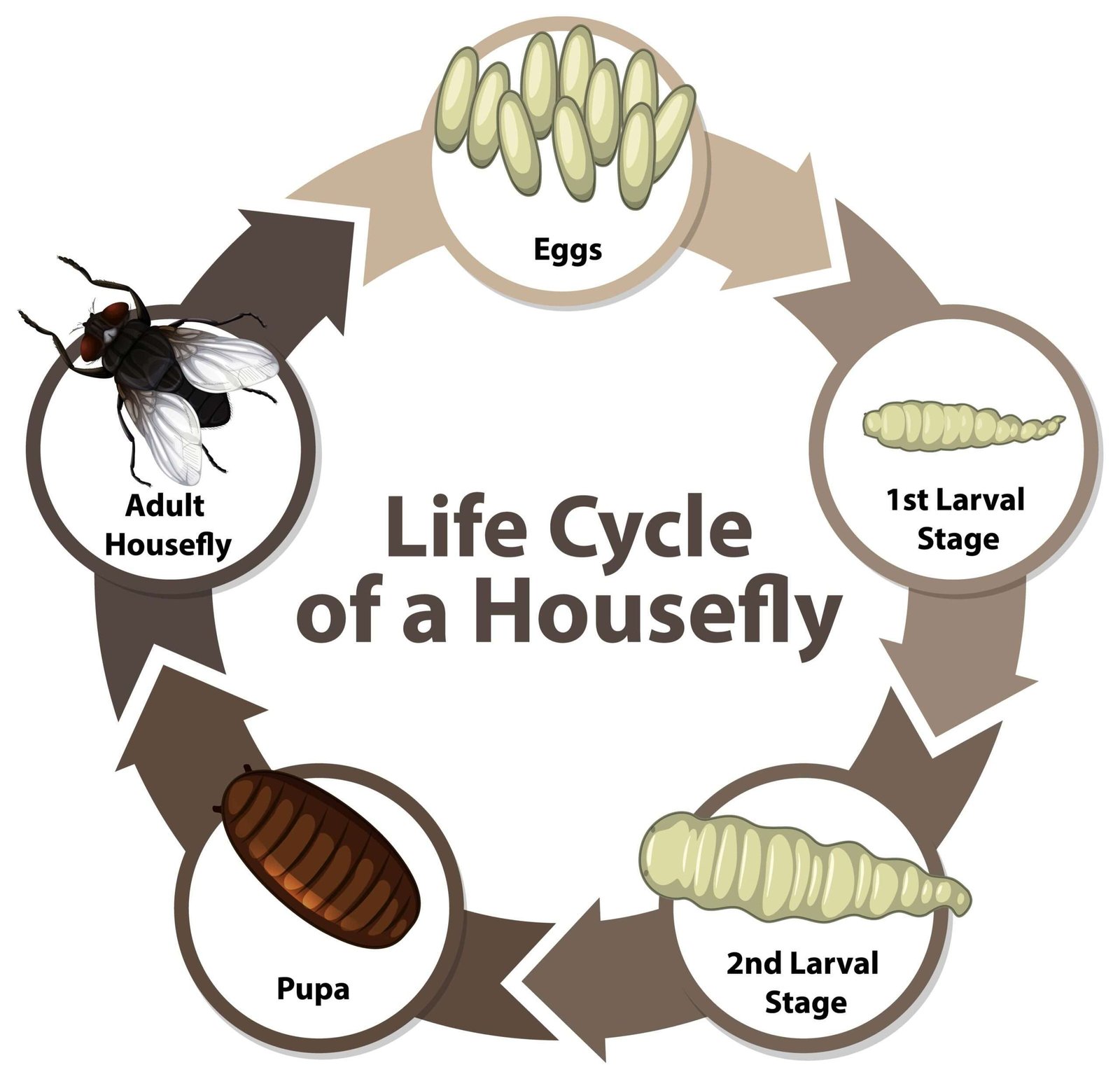 House flies are opportunistic breeders, readily laying their eggs in any moist, warm place rich in decaying organic matter. Here are some common breeding grounds that you should be aware of to get rid of houseflies.
House flies are opportunistic breeders, readily laying their eggs in any moist, warm place rich in decaying organic matter. Here are some common breeding grounds that you should be aware of to get rid of houseflies.
Unsecured garbage: This is the number one breeding ground for houseflies in urban areas. Uncovered trash cans, overflowing bins, and any spills or food scraps left lying around attract flies and provide the perfect environment for their eggs to develop.
Animal waste: Uncleaned pet droppings, both indoors and outdoors, are highly attractive to flies due to their odour and suitable conditions for laying eggs. This includes droppings from dogs, cats, birds, and even livestock in nearby areas.
Sewage and drains: Clogged or slow drains with accumulated food scraps and moisture, as well as overflowing septic tanks or sewage systems, provide an ideal breeding ground for flies.
Compost heaps and manure piles: While beneficial for gardening, improperly maintained compost heaps and piles of manure can attract flies and become breeding grounds if they become too wet or contain leftover food scraps.
Decaying vegetation: Piles of decaying leaves, grass clippings, or other organic matter can attract flies, especially if they remain moist and provide a warm environment.
9 Best ways to get rid of house fly infestations?
By implementing these preventative measures, you can effectively reduce the likelihood of house fly infestations in your home, creating a more comfortable and hygienic living environment for you and your family.
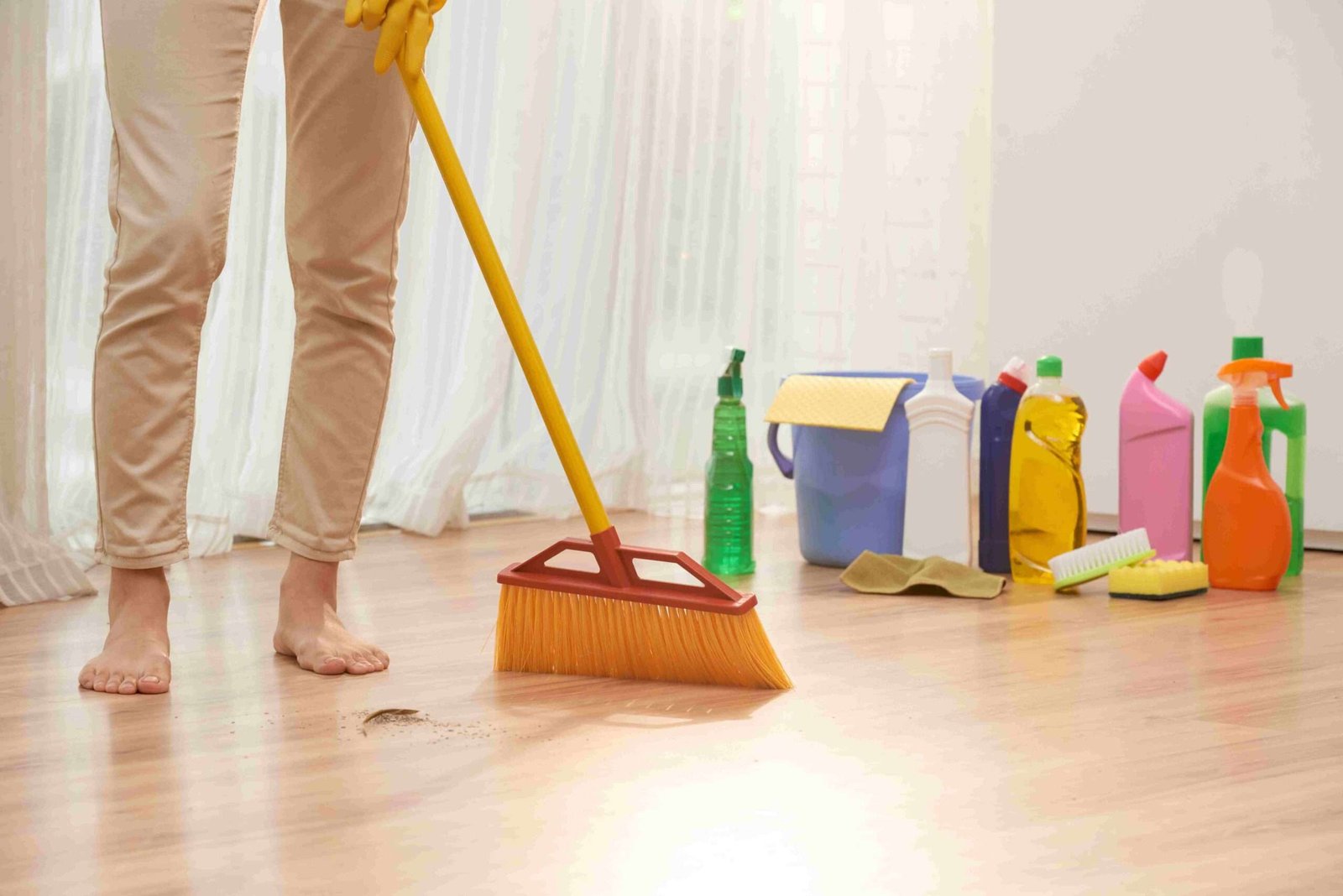 1. Maintain Cleanliness: Regularly clean your home, paying special attention to areas where house flies are attracted to, such as kitchens, garbage bins, and pet areas. Dispose of food waste properly, and keep surfaces clean to eliminate potential breeding sites.
1. Maintain Cleanliness: Regularly clean your home, paying special attention to areas where house flies are attracted to, such as kitchens, garbage bins, and pet areas. Dispose of food waste properly, and keep surfaces clean to eliminate potential breeding sites.
2. Seal Entry Points: Inspect your home for any gaps, cracks, or openings that could serve as entry points for flies. Seal these gaps with caulk or weather stripping to prevent flies from entering your living spaces.
3. Proper Waste Management: Securely cover trash cans and compost bins to prevent flies from accessing organic waste. Dispose of garbage regularly, and keep outdoor bins away from the house to minimize attraction to flies.
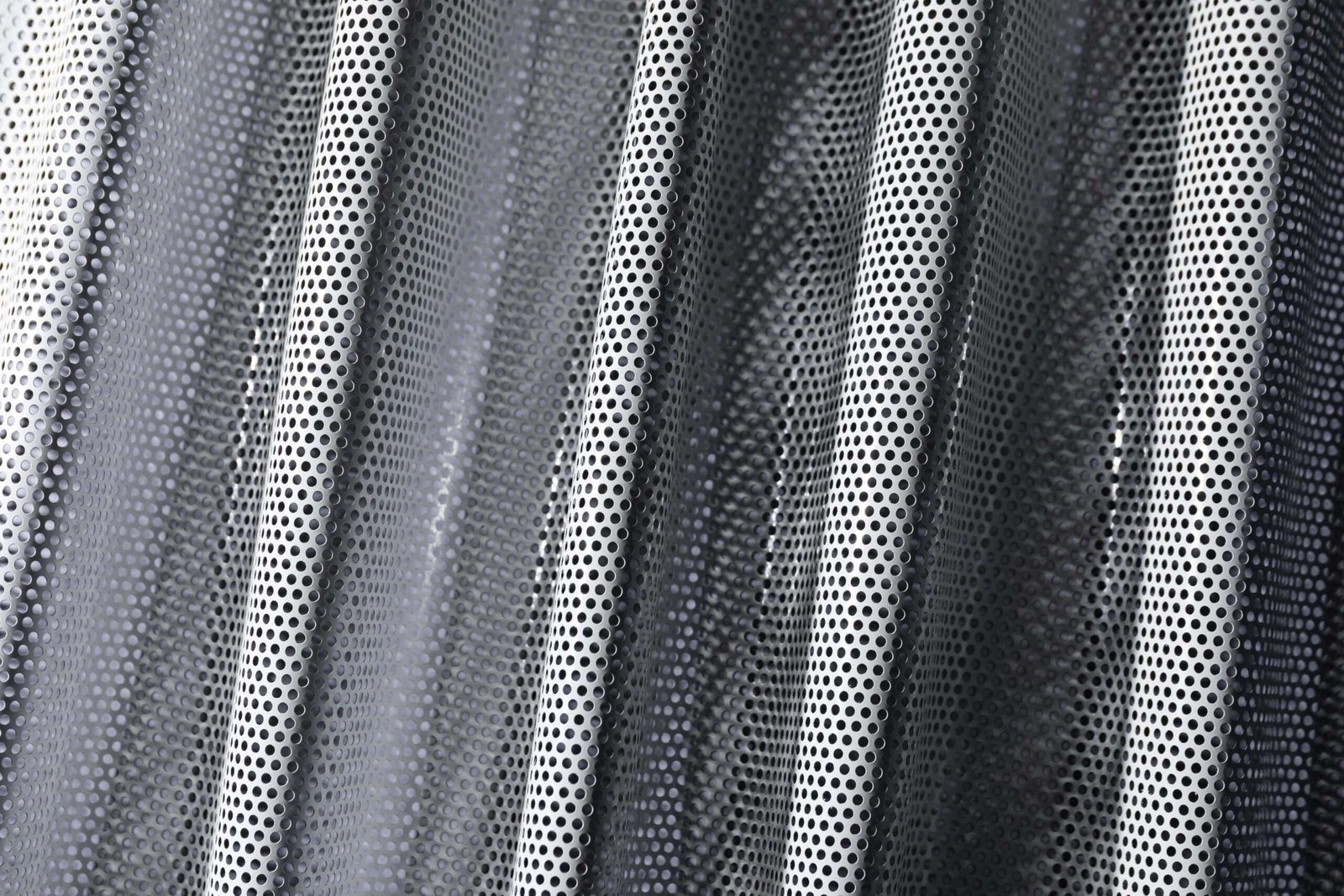 4. Install Screens: Install window and door screens to prevent flies from entering your home while still allowing for ventilation. Make sure the screens are in good condition and free of tears or holes where flies could enter.
4. Install Screens: Install window and door screens to prevent flies from entering your home while still allowing for ventilation. Make sure the screens are in good condition and free of tears or holes where flies could enter.
5. Use Fly Traps or Repellents: Set up fly traps or use natural repellents to deter flies from entering your home. Fly traps can be placed in areas where flies are commonly found, while repellents such as essential oils like citronella or eucalyptus can be sprayed in fly-prone areas to discourage them from lingering.
6. Regular Pet Care: If you have pets, ensure their living spaces are kept clean. Clean up pet waste promptly and maintain litter boxes regularly. Flies are attracted to decaying organic matter, and keeping pet areas clean will help reduce their breeding grounds.
7. Proper Food Storage: Store food items in airtight containers to prevent attracting flies. Keep fruits and vegetables in the refrigerator, and avoid leaving uncovered food on countertops. This minimizes the odours that attract flies and helps keep your kitchen fly-free.
8. Natural Predators: Introduce natural predators of flies to your environment. Consider having plants like basil or mint, which can repel flies, or even adopting carnivorous plants like the Venus flytrap. Additionally, attracting birds or beneficial insects like parasitic wasps can help control fly populations.
9. Regular Maintenance of Drains: Flies often breed in damp and dirty areas, and drains can be an ideal breeding ground. Regularly clean and disinfect drains to eliminate any organic matter buildup, which can serve as a breeding site for flies.
How to make a trap to get rid of house flies?
 Materials:
Materials:
| 1. | Empty plastic bottle (like a soda or water bottle of 2 ltr) |
| 2. | Sharp knife or scissors |
| 3. | Rubber band |
| 4. | Bait (choose one): |
| 5. | Sugar water (mix sugar with water) |
| 6. | Fruit juice |
| 7. | Overripe fruit |
| 8. | Vinegar and a drop of dish soap |
Instructions:
|
Tips:
1. For added attractiveness, you can place a piece of overripe fruit inside the trap along with the bait.
2. Experiment with different baits to see which one works best for the type of flies you’re dealing with.
3. Ensure that the trap is stable and won’t easily tip over.
What natural repellents can I use to keep house flies away?
There are several natural and safe methods to Get Rid of House Flies using essential oils, herbs, and other eco-friendly options. Here are some effective approaches:
Peppermint Oil: Flies are known to dislike the strong scent of peppermint. Mix a few drops of peppermint oil with water in a spray bottle and mist areas where flies are present.
Eucalyptus Oil: Similar to peppermint, eucalyptus oil has a strong aroma that repels flies. Use it in a diffuser or mix it with water to create a spray.
Lemon Eucalyptus Oil: This oil contains compounds that act as a natural insect repellent. Dilute it with a carrier oil and apply it to surfaces or use it in a diffuser.
Basil: Planting basil around doors and windows can help repel flies. You can also keep pots of fresh basil indoors.
Lavender: Flies are not fond of the scent of lavender. Plant lavender around your home or use lavender essential oil in a diffuser.
Rosemary: Place rosemary near entry points to deter flies. Burning dried rosemary can also be effective.
Citrus Peels: Flies dislike the smell of citrus. Place citrus peels, such as lemon or orange, near fly-prone areas.
Citrus Essential Oils: Citrus oils like lemon, orange, and grapefruit can be used in a spray or diffuser to repel flies.
Apple Cider Vinegar Trap: Create a fly trap using apple cider vinegar and a drop of dish soap. Flies are attracted to the vinegar but get trapped by the soap.
Cloves in Citrus: Insert cloves into a halved citrus fruit, like a lemon or orange, and place it in fly-prone areas. The combination is effective in repelling flies.
Mint Plants: Planting mint around your home can help keep flies away. You can also place mint leaves in fly-prone areas.
Bay Leaf Sachets: Create sachets with dried bay leaves and place them in areas where flies are a problem. The strong scent is a natural deterrent.
plants that can help deter house flies?
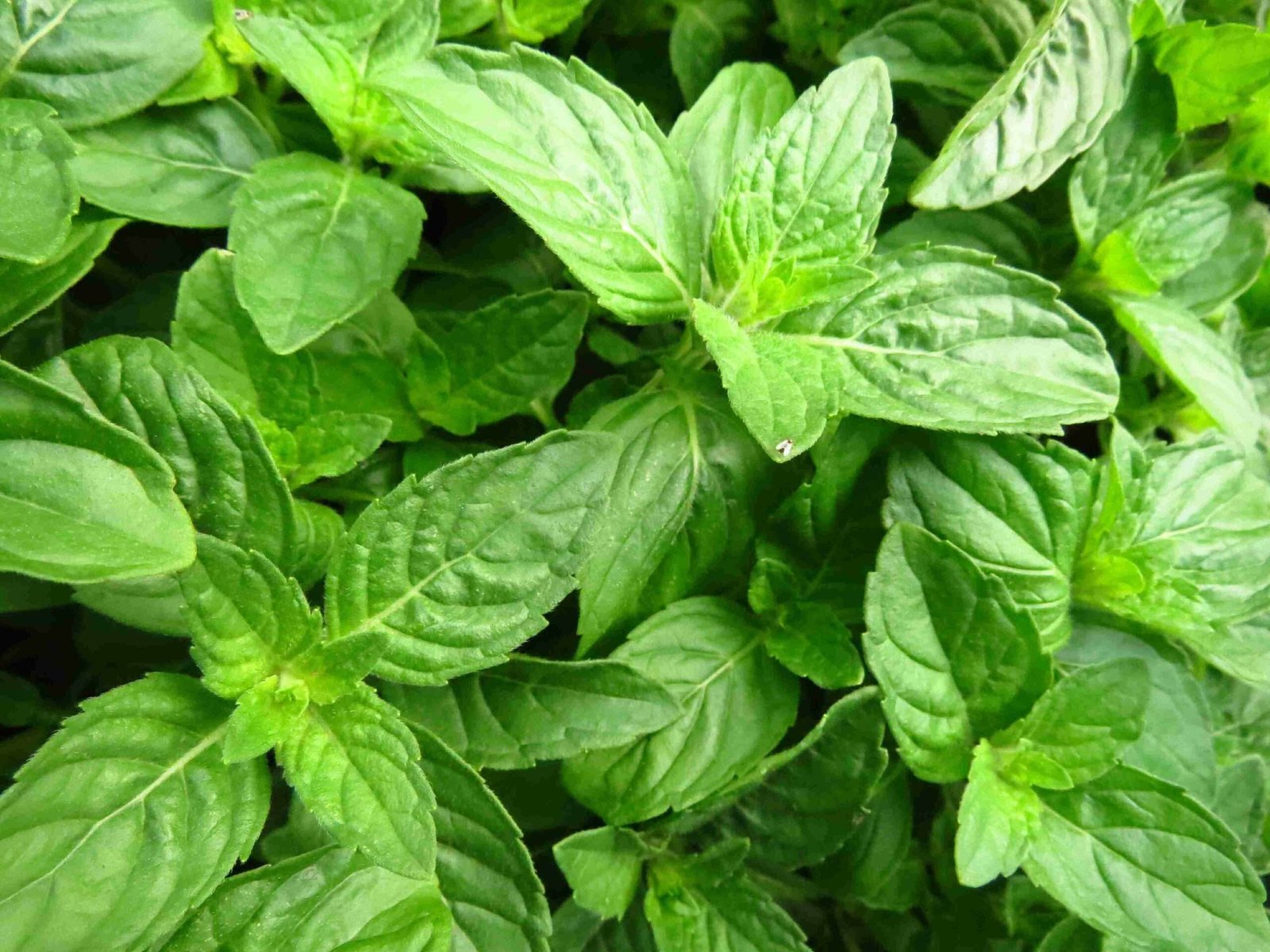 Plants like basil, lavender, mint, chrysanthemum, and rosemary can help prevent house flies by providing natural and chemical-free solutions. Basil emits an unpleasant scent, while lavender produces a sweet aroma that repels flies. Mint emits a refreshing scent that flies dislike, and chrysanthemums contain pyrethrin, a natural insect repellent. Rosemary releases fragrant oils that deter flies and add a flavorful herb to cooking. These plants help in Get Rid of House Flies control and also add beauty, fragrance, and utility to your home or garden.
Plants like basil, lavender, mint, chrysanthemum, and rosemary can help prevent house flies by providing natural and chemical-free solutions. Basil emits an unpleasant scent, while lavender produces a sweet aroma that repels flies. Mint emits a refreshing scent that flies dislike, and chrysanthemums contain pyrethrin, a natural insect repellent. Rosemary releases fragrant oils that deter flies and add a flavorful herb to cooking. These plants help in Get Rid of House Flies control and also add beauty, fragrance, and utility to your home or garden.
Use of electronic fly zappers indoors?
Electronic fly zappers, for Get Rid of House Flieshouse flies also known as electric fly traps or bug zappers, can be used indoors. These devices are designed to attract and kill flying insects, including flies, by using ultraviolet (UV) light to lure them towards an electrified grid. When the insects come into contact with the grid, they are electrocuted.
 Here are some considerations when using electronic fly zappers indoors:
Here are some considerations when using electronic fly zappers indoors:
1. Placement: Position the fly zapper in areas where flies are most problematic. Common locations include kitchens, dining areas, and near entry points.
2. Safety: Ensure that the fly zapper is placed in a safe location, away from children and pets. Follow the manufacturer’s instructions for installation and use.
3. Maintenance: Regularly clean the collection tray or grid of the fly zapper to remove dead insects. This helps maintain the effectiveness of the device.
4. Consideration for Noise and Light: Some electronic fly zappers can produce a noticeable zapping sound when insects are electrocuted. Additionally, they emit UV light. If these factors may be disruptive in certain indoor spaces, choose a model that minimizes noise or has a subdued light feature.
5. Size of the Area: Choose a fly zapper appropriate for the size of the area you want to cover. Larger areas may require multiple units or more powerful models.
Conclusion
in conclusion, How to Get Rid of House Flieshouse flies requires a comprehensive plan consisting of preventative measures, herbal remedies, and sometimes outside help. Simply keeping your house clean and tidy using natural repellents, and dealing with any underlying issues, you can reduce the number of flies that visit your home. Always remember to take preventative measures, consider the effects on the environment, and give human and pet health and well-being priority. Your home can become a more comfortable and hygienic place for you and your family to live if you are committed to controlling and getting rid of house fly infestations.
FAQs (Frequently Asked Questions)
1. Q: Why are house flies attracted to my home?
A: House flies are attracted to decaying organic matter, garbage, and food residues. Ensuring proper waste disposal and cleanliness can help reduce their attraction.
2. Q: What diseases can house flies carry?
A: House flies can carry diseases such as salmonella, E. coli, and various pathogens. Their contact with contaminated surfaces can lead to the spread of these illnesses.
3. Q: How do I get rid of house flies naturally?
A: Natural methods to get rid of house flies include using essential oils like lavender or eucalyptus, setting up DIY traps with apple cider vinegar or sugar, and maintaining cleanliness to eliminate breeding grounds.
4. Q: Can house flies transmit diseases to humans?
A: Yes, house flies can transmit diseases by contaminating food and surfaces with bacteria and pathogens picked up from decaying organic matter and waste. Diseases they can transmit include salmonella, E. coli, and cholera.
5. Q: What is the best way to kill house flies?
A: Effective methods to kill house flies include using fly swatters, fly traps, or insecticides specifically designed for flying insects. It’s important to follow safety instructions and keep these methods away from children and pets.

